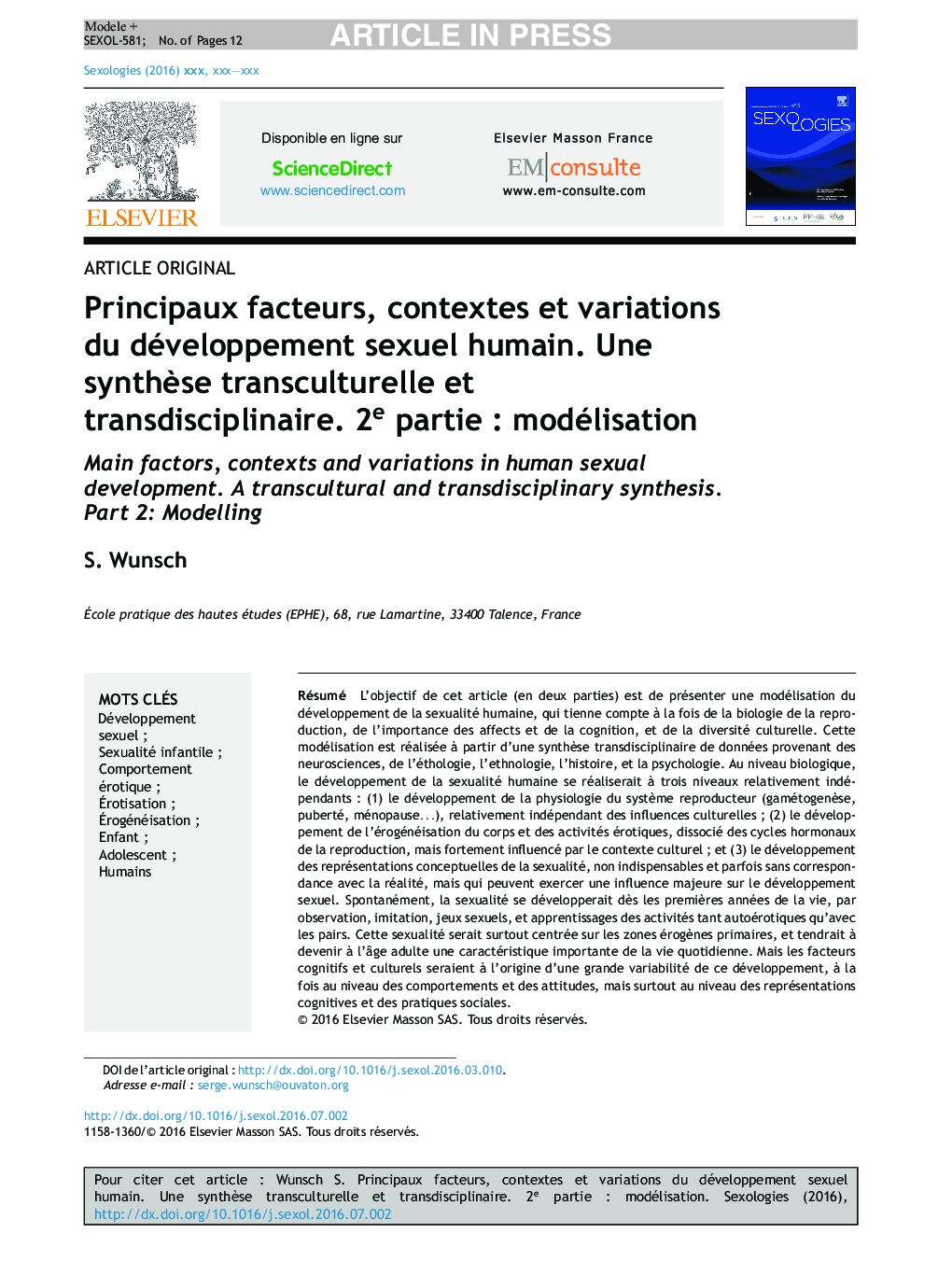| کد مقاله | کد نشریه | سال انتشار | مقاله انگلیسی | نسخه تمام متن |
|---|---|---|---|---|
| 4935591 | 548850 | 2016 | 12 صفحه PDF | دانلود رایگان |
عنوان انگلیسی مقاله ISI
Principaux facteurs, contextes et variations du développement sexuel humain. Une synthèse transculturelle et transdisciplinaire. 2e partie : modélisation
دانلود مقاله + سفارش ترجمه
دانلود مقاله ISI انگلیسی
رایگان برای ایرانیان
کلمات کلیدی
موضوعات مرتبط
علوم پزشکی و سلامت
پزشکی و دندانپزشکی
زنان، زایمان و بهداشت زنان
پیش نمایش صفحه اول مقاله

چکیده انگلیسی
The aim of this article (in two parts) is to present a way to model the development of human sexuality, taking account at the same time of the biological aspects of reproduction, the importance of affects and cognition, and cultural diversity. This model is based on a multidisciplinary synthesis of data from the neurosciences, ethology, ethnology, history and psychology. From a biological standpoint, the development of human sexuality takes place at three relatively independent levels: (1) physiological development of the reproductive system (gametogenesis, puberty, menopauseâ¦), relatively independently from cultural influences; (2) the development of erogeneity of the body and erotic activities, dissociated from the hormonal cycles of reproduction, but strongly influenced by the cultural context; and (3) the development of conceptual representations of sexuality, not indispensable and sometimes with no connection to reality, but which in some cases play a major role in sexual development. Sexuality is thought to develop spontaneously in the early years of a child's life, by observation, imitation, sexual games, and the learning of activities of self-arousal and with peers. This sexuality focuses on the primary erogenous zones, and tends to become an important characteristic of daily life on reaching adulthood. But cognitive and cultural factors can explain the huge variations in this development, both in terms of behaviors and attitudes, but also, and more importantly, in terms of cognitive representations and social practices.
ناشر
Database: Elsevier - ScienceDirect (ساینس دایرکت)
Journal: Sexologies - Volume 25, Issue 4, November 2016, Pages 141-152
Journal: Sexologies - Volume 25, Issue 4, November 2016, Pages 141-152
نویسندگان
S. Wunsch,